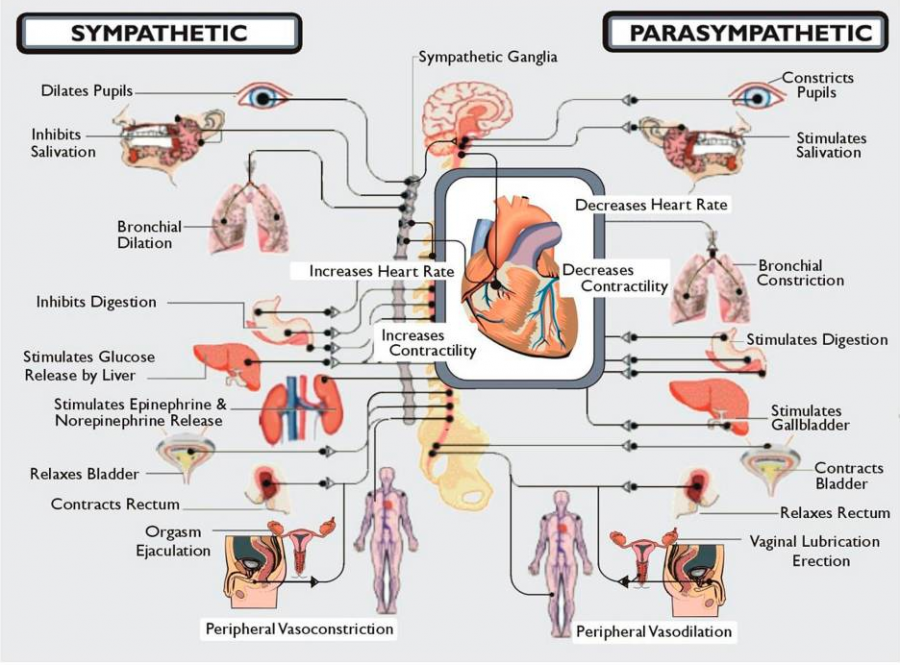What is Dysautonomia?
How can it affect your life? Could you have some of these symptoms? Here is a look into the symptoms and make up of the unique condition Dysautonomia. Also, read along to reveal how this condition can affect your day-to-day life.
Front Endocrinol (Laussanne). 2012; 3: 71.
Parts of the Autonomic Nervous System that can cause problems for people with Dysautonomia
November 12, 2020
The human body is weird.
People get sick, injured, and even cancer for no known reason.
When it comes to sicknesses, there are so many possibilities. You could have strep, COVID-19, or even something nobody has ever heard of.
For example, a condition like Dysautonomia is a unique one.
According to the Merriam-Webster dictionary, Dysautonomia is “a disorder of the autonomic nervous system [or ANS] that causes disturbances in all or some autonomic functions,” otherwise known as a nerve condition.
Kadrien Earp, a sophomore at George Ranch High School, has been diagnosed with this condition. Some people grow into the conditions based on what type they have, where others have symptoms all of their lives.
Earp has always had debilitating issues, but about two years ago, they became extremely present in her everyday life.
“I have had problems my entire life that have caused me to miss important events and life in general,” Earp said.
People with this condition experience symptoms like swings in body temperature, sensory sensitivity, dizziness, fast or slow heart rate, weakness, forgetfulness, sleeping problems, and that’s just the beginning.
It can affect things like blood pressure, digestion, breathing, and kidney function. Triggers for these symptoms include stress, hot and cold environments, weather changes, change in medication, and dehydration.
Earp experiences most of these things. The strongest trigger is her sensitivity to heat; she has to keep her house at 68 degrees most of the time and fights with her family to keep it as cold as possible.
Another big one is her heart rate, which fluctuates significantly.
“My heart rate could go from 85 to 165 very quickly. Even when I stand up, it skyrockets,” Earp stated.
There are different types of Dysautonomia like POTS, PAF, NCS, FD, AAG, and MSA. They all have different characteristics of their own. Because it’s so misunderstood, it can take years for patients to get a diagnosis, which, in turn, can lead to multiple misdiagnoses.
Earp expressed her frustration over the fact that doctors that misdiagnose people with things like anxiety when they really have a type of Dysautonomia.
“So many doctors just are not educated about it. Most believe you are just faking it,” Earp shared.
One of her first gastroenterologists actually proceeded to diagnose her with IBS, irritable bowel syndrome, and when she got to the point that she was absolutely miserable, she went to a different doctor.
Her doctor is one of only 114 in the country who specializes in this condition.
More than 70 million people have been impacted by it, yet not many know about it. It can be a secondary condition of a different disease like Diabetes, Crohn’s disease, and EDS.
Oftentimes though, it’s presented by itself. Dysautonomia isn’t talked about very much, but if it is then most people don’t know the level of inconvenience. This is one of the many rare conditions that deserves more attention!




